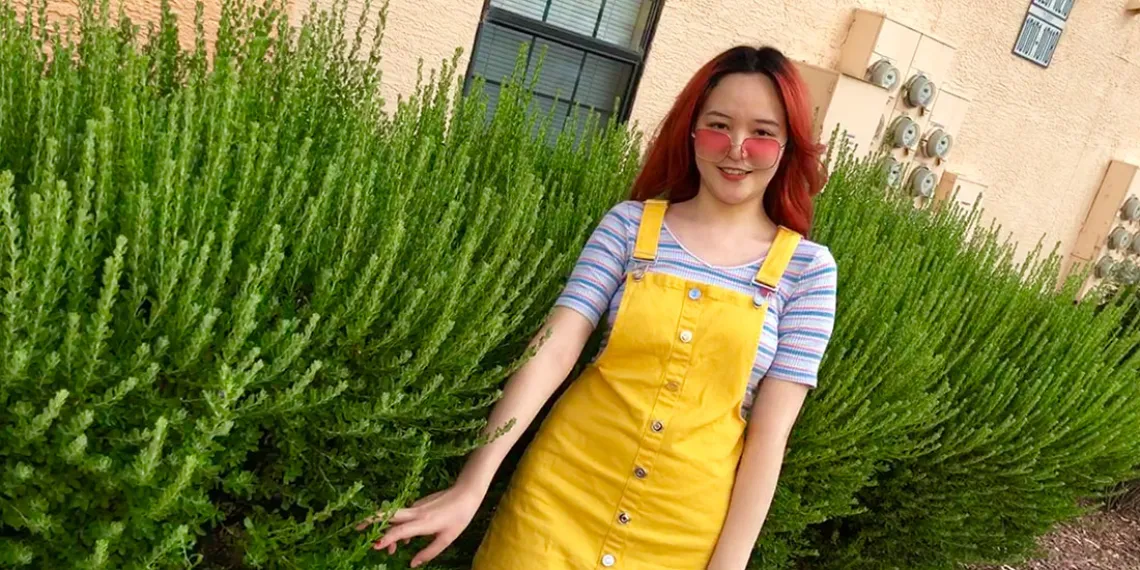A Passion for Real Estate Finance: Xiaoqin (Heather) Shi ' 20 MRED

Seven Questions with Master of Real Estate Development Student Xiaoqin (Heather) Shi

Xiaoqin (Heather) Shi '21 MRED
Heather Shi entered CAPLA's on-campus Master of Real Estate Development program in Fall 2019 after earning her undergraduate degree in computer science and technology overseas. She is from Shanxi, China.
What brought you to the University of Arizona to study real estate development?
Before I applied to the program, I dreamed of gaining more academic knowledge in real estate. I was also attracted by the diversity of the courses. I want to improve my financial skills and overall knowledge of the industry, particularly since I have little experience in finance.
What is your primary area of interest in real estate development?
My main focus will be property research. The most exciting part for me is how to add value to existing properties. And to achieve that, I need to learn more about sustainable development, including green building. I love to analyze the financial aspects of these properties.
What do you like best about the MRED program and College of Architecture, Planning and Landscape Architecture?
I believe it’s the freedom of what you learn and the atmosphere. You can talk with your professor because they have time—faculty are friendly and easy to work with. There are also engaging discussions with the whole class, and different perspectives are welcome. Because of the open and interactive nature of the program, I’ve learned a lot during my time in the MRED program.
What has been your biggest challenge at CAPLA, and how did you overcome that challenge?
My biggest challenge at first was the language. I had just arrived from China and took a finance class beginning my third day in Tucson. I had some difficulty understanding the conversations, so I asked for suggestions from my professor, who provided resources to help with my language skills. I really appreciate that he went out of his way to help me. Between extra study of the language and constant communications with my classmates, I was able to greatly increase my English proficiency.
What does the CAPLA experience mean for you?
The experience of CAPLA means a lot to me. The faculty here are both friendly and wise. They offer valuable suggestions and teach the most important things we need to learn.
Academically, I gained a lot of skills. First, I learned a lot about the general structure of the real estate development process, so I fully understand how a building or larger development transitions from an idea into a real object. This is really important for people who don’t have much knowledge about the development process. It gives you a sense of how this could work out, which stage could be the tricky one and when things go wrong, who you can turn to for guidance. For me, the most interesting parts of the program are the finance classes. In a fun and supportive environment, I learned how to build a financial table to analyze a building and how to represent its value. Numbers aren’t just cold statistics for me. They mean a lot for whether this property is a valuable one and worthy for investment.
Also, I made a lot of friends at CAPLA, and I think these friendships will last. The overall program is highly recommended and brought me closer to my dream job and dream life!
What is your dream job?
I used to work in a company in China on a project named “City Brain.” That’s where my dream of working in real estate development began. I then researched urban science even as I studied computer science. For now, I plan to work in urban informatics or urban science. I believe the future of the real estate development profession will combine computer skills with real estate knowledge, and that’s a natural fit for me. I am also considering pursuing a PhD.
What advice do you have for prospective MRED students?
Be sure to talk to your professors—you can receive lots of useful information and suggestions not just for real estate, but for life.



